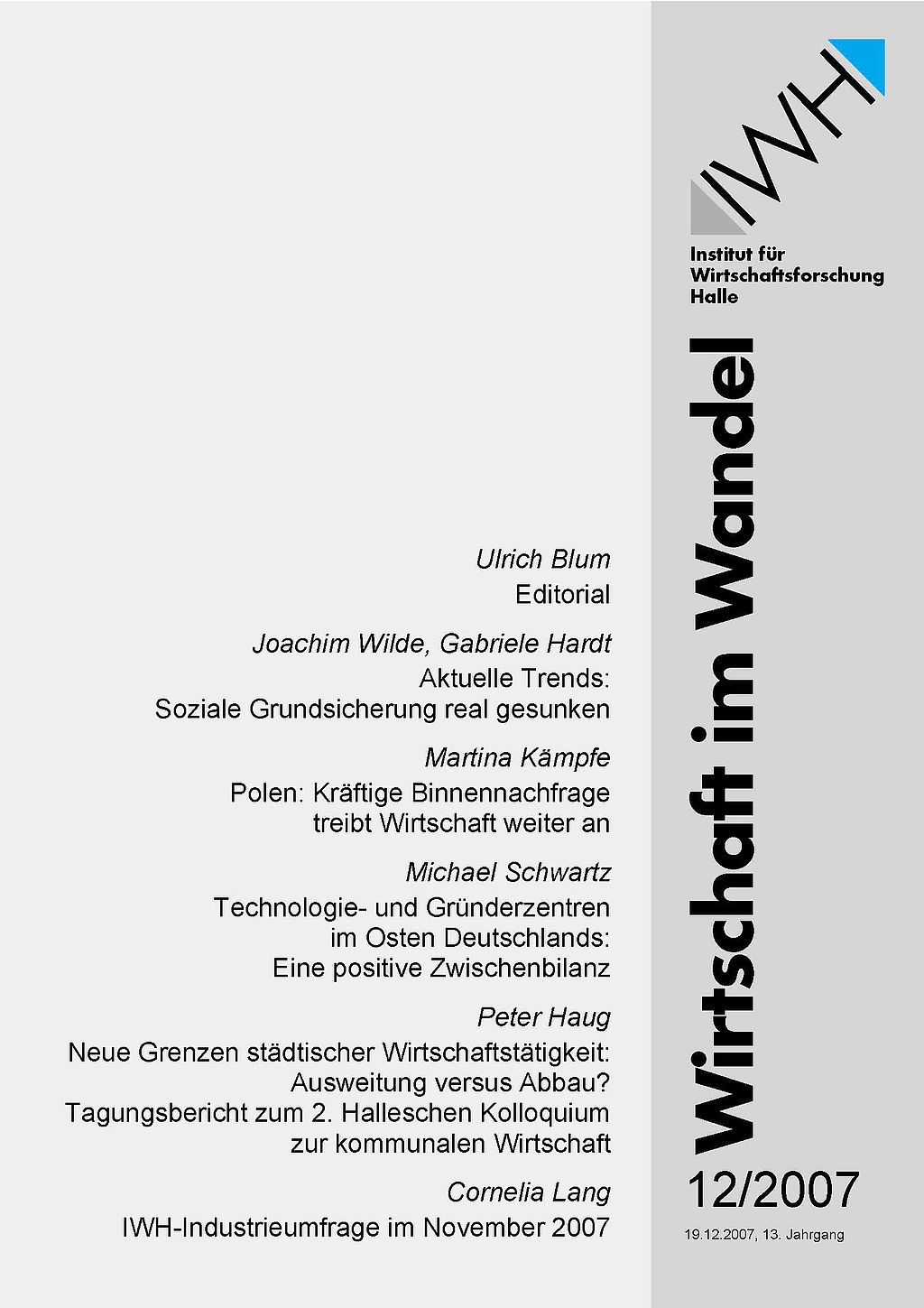
New Limits of Municipal Economic Activity: Expansion versus Reduction?
On October 11th and 12th 2007, the department of urban economics of the Halle Institute for Economic Research organized a conference on local governments’ entrepreneurial activities. The main target of this second conference after the first one in 2005 was to analyze the spatial and functional boundaries of municipal economic activities. The participants came from various fields of science, local public administrations, municipal enterprises, associations and included politicians and others interested in the topic. The presentations covered a broad variety of subjects. On the first conference day, the speakers dealt with the partly controversial attitude of different disciplines such as law, economics, public business administration or sociology towards the local public economy. Other presenters focused on selected municipal services (public transportation, housing). The second day was dedicated to the topics restrictions on municipal economic activities in Southern Europe, regional effects of municipal enterprises and employee protection in case of privatization. The conference was closed by a panel discussion with distinguished representatives from politics, science and management about the future role of municipal enterprises. The presentations and discussions showed that the times are changing for the local public sector. In addition, the participants rejected an unrestricted extension of markets or business fields of municipal enterprises as well as the complete privatization of municipal services.




